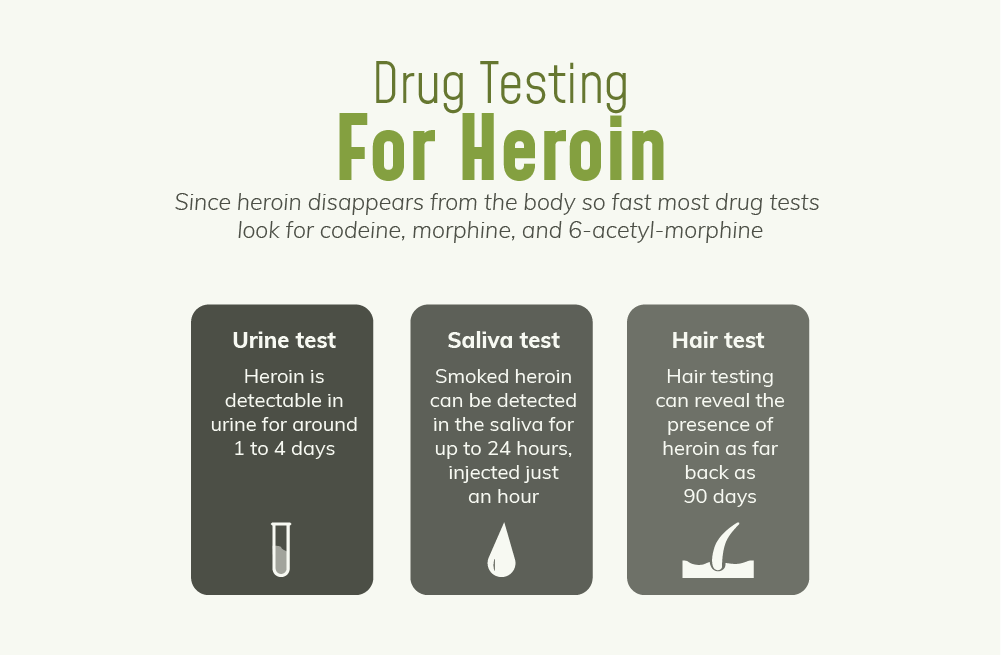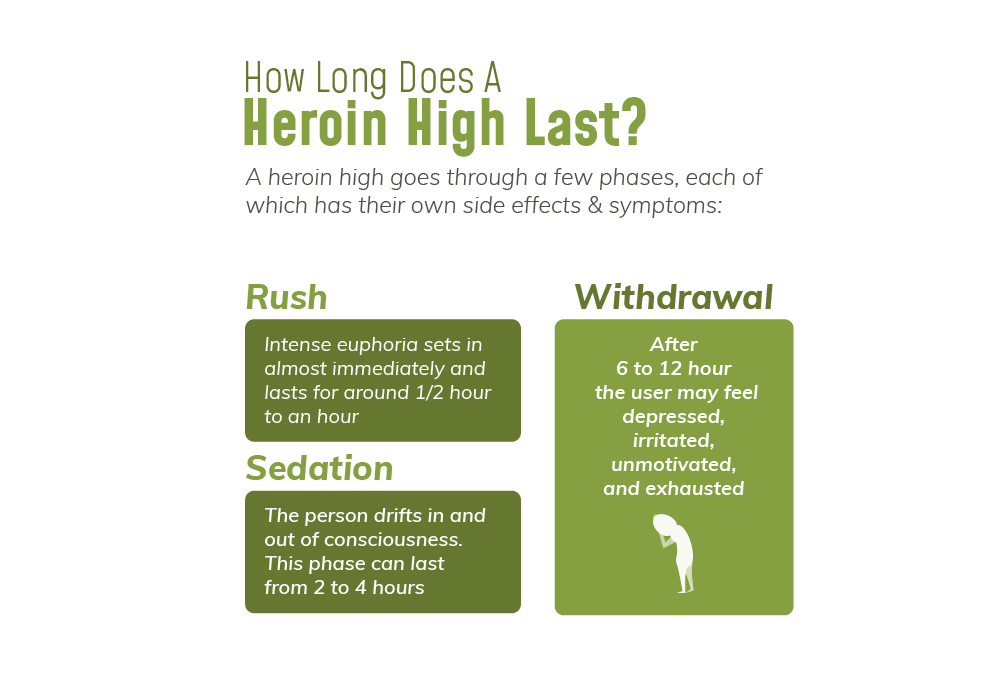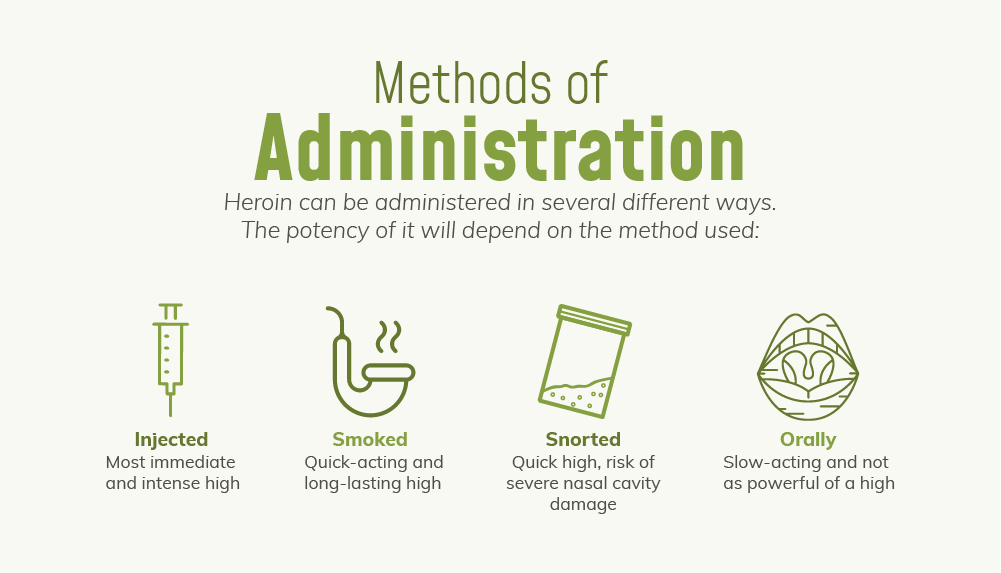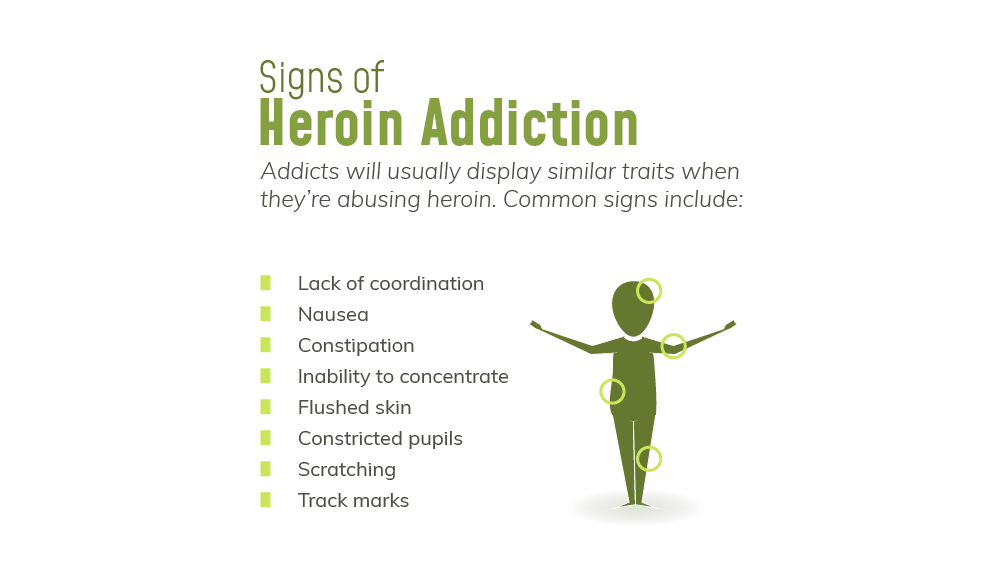How Long Does a Heroin High Last?
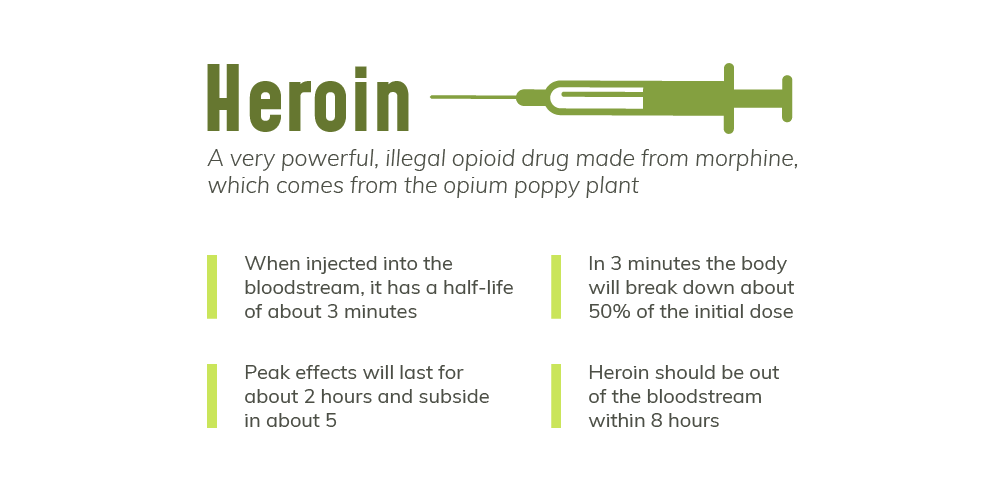
The time it takes the body to use a drug is measured in a half-life. A half-life can demonstrate how long an expert can expect a substance to stay in someone's body.
For example, when heroin enters the bloodstream, its half-life is about three minutes. After three minutes, the body will break down about 50% of the substance.
Heroin users typically feel the peak of the high about two hours after taking the dose and usually do not have any of the substance active in their body after eight hours.
As the body uses heroin, it breaks down into smaller particles called metabolites, which is how it will eventually leave the body. Metabolites caused by heroin use can usually be found on a drug test even days later.
Some factors that influence the time it takes for a person's body to break down heroin include:
- Dose of heroin
- Genetics
- Height
- Weight
- Nutrition
- Hydration
- Liver and kidney health



